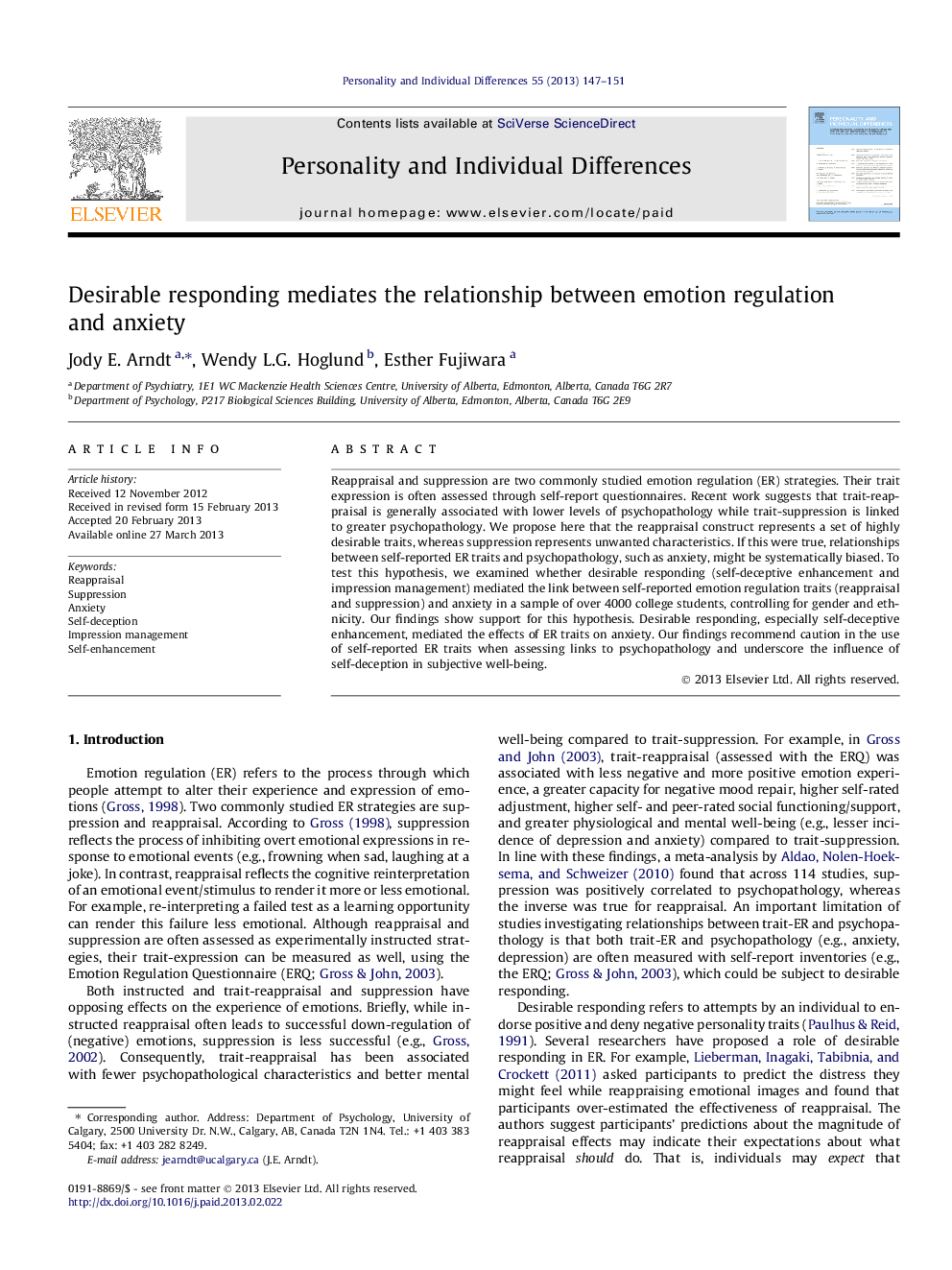| Article ID | Journal | Published Year | Pages | File Type |
|---|---|---|---|---|
| 890763 | Personality and Individual Differences | 2013 | 5 Pages |
Reappraisal and suppression are two commonly studied emotion regulation (ER) strategies. Their trait expression is often assessed through self-report questionnaires. Recent work suggests that trait-reappraisal is generally associated with lower levels of psychopathology while trait-suppression is linked to greater psychopathology. We propose here that the reappraisal construct represents a set of highly desirable traits, whereas suppression represents unwanted characteristics. If this were true, relationships between self-reported ER traits and psychopathology, such as anxiety, might be systematically biased. To test this hypothesis, we examined whether desirable responding (self-deceptive enhancement and impression management) mediated the link between self-reported emotion regulation traits (reappraisal and suppression) and anxiety in a sample of over 4000 college students, controlling for gender and ethnicity. Our findings show support for this hypothesis. Desirable responding, especially self-deceptive enhancement, mediated the effects of ER traits on anxiety. Our findings recommend caution in the use of self-reported ER traits when assessing links to psychopathology and underscore the influence of self-deception in subjective well-being.
• Trait-reappraisal and trait-suppression relate to trait-anxiety in opposing ways. • Desirable responding substantially mediated this relationship in over 4000 students. • Relationships between self-reported emotion regulation and anxiety may be biased.
